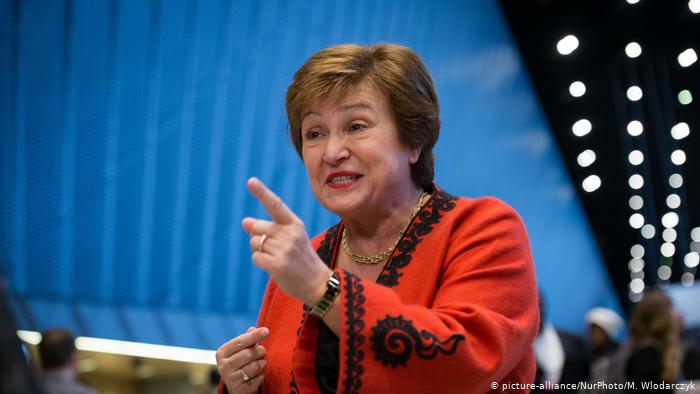The International Monetary Fund has expressed worry about the high exposure of banks to government securities that is Treasury bills and bonds, saying it is increasing the balance sheet risks of the banks.
In its detail Article IV Consultation on Ghana, the Fund said the situation is also crowding out private sector lending.
“Government lending supported the banking sector through the pandemic, but is crowding out private-sector credit and increasing balance sheet risks”.
This is also coming at a time when Fitch Ratings reviewed the outlook of two Nigerian banks operating in Ghana, from stable to negative because they are highly exposed to Government of Ghana's securities, though it assigned its ‘B’ ratings.
The IMF further said that the share of government lending to total bank assets reached 44.7% in February 2021, from 36.3% a year before, driven by the large budget deficit, and the pandemic-induced credit risks and slowdown in credit demand.
“This growing sovereign exposure, a trend that started even before the pandemic, props up bank profitability but undermines private-sector credit growth. Moreover, the exposure could create bank balance sheet losses if government yields were to increase, amplifying the impact of potential debt rollover difficulties or other exogenous shocks on credit growth and economic activity”, it pointed out.
Meanwhile, the Bank of Ghana is pushing ahead with regulatory reform.
According to the IMF, the Central Bank is drafting Pillar II regulations and completing accompanying risk management guidelines.
It is also conducting a review of the Specialised Deposits-Taking Institutions subsector with technical support from the World Bank, to identify gaps in the legal, regulatory, and supervisory framework and the practices that led to systemic distress and resolution of over 400 failed SDIs in 2019.
The Bank of Ghana has also recently revised the Emergency Liquidity Assistance framework and is finalizing new directives, including on liquidity management, supervisory review and evaluation process, and corporate governance disclosure under its ongoing Basel II/III reforms.
The IMF finally called for the sustainment and enhancement of implementation of the Anti-Money Laundering/CFT framework that helped Ghana exit the FATF “grey list” in June 2021.
Latest Stories
-
Mo Ibrahim Foundation issues key recommendations ahead of Global Financing Summit in Seville
17 seconds -
Paper shortage hits Births and Deaths Registry
49 seconds -
Police arrest 16, including nursing mother, in Damongo drug crackdown
3 minutes -
Cargo truck driver arrested after smashing police vehicle in Damongo chase
14 minutes -
Iranian foreign minister admits serious damage to nuclear sites
22 minutes -
Philanthropist rescues conflict victims and the poor in North East Region
25 minutes -
Support Mahama with good counsel – Women’s Caucus charges Vice President Naana Jane
30 minutes -
15 including teenage nursing mother arrested in Damongo on World Drug Day
36 minutes -
Over 4,000 recruited for DRIP; nationwide training underway – Vanderpuye
38 minutes -
Tekno drops dance-ready hit with Nollywood star Regina Daniel
44 minutes -
Schelle Purcell of Tyler Perry’s ‘Straw’ fame honoured by Rain Foundations
46 minutes -
UK pledges £1.25bn to Gavi to vaccinate 500 million children, including in Ghana
50 minutes -
President Mahama appoints Bridget Otoo as Presidential Staffer
1 hour -
Rev. Stephen Wengam appointed Chair of Ghana Immigration Service Governing Council
1 hour -
Refrain from using AI sermons – Bishop
1 hour

